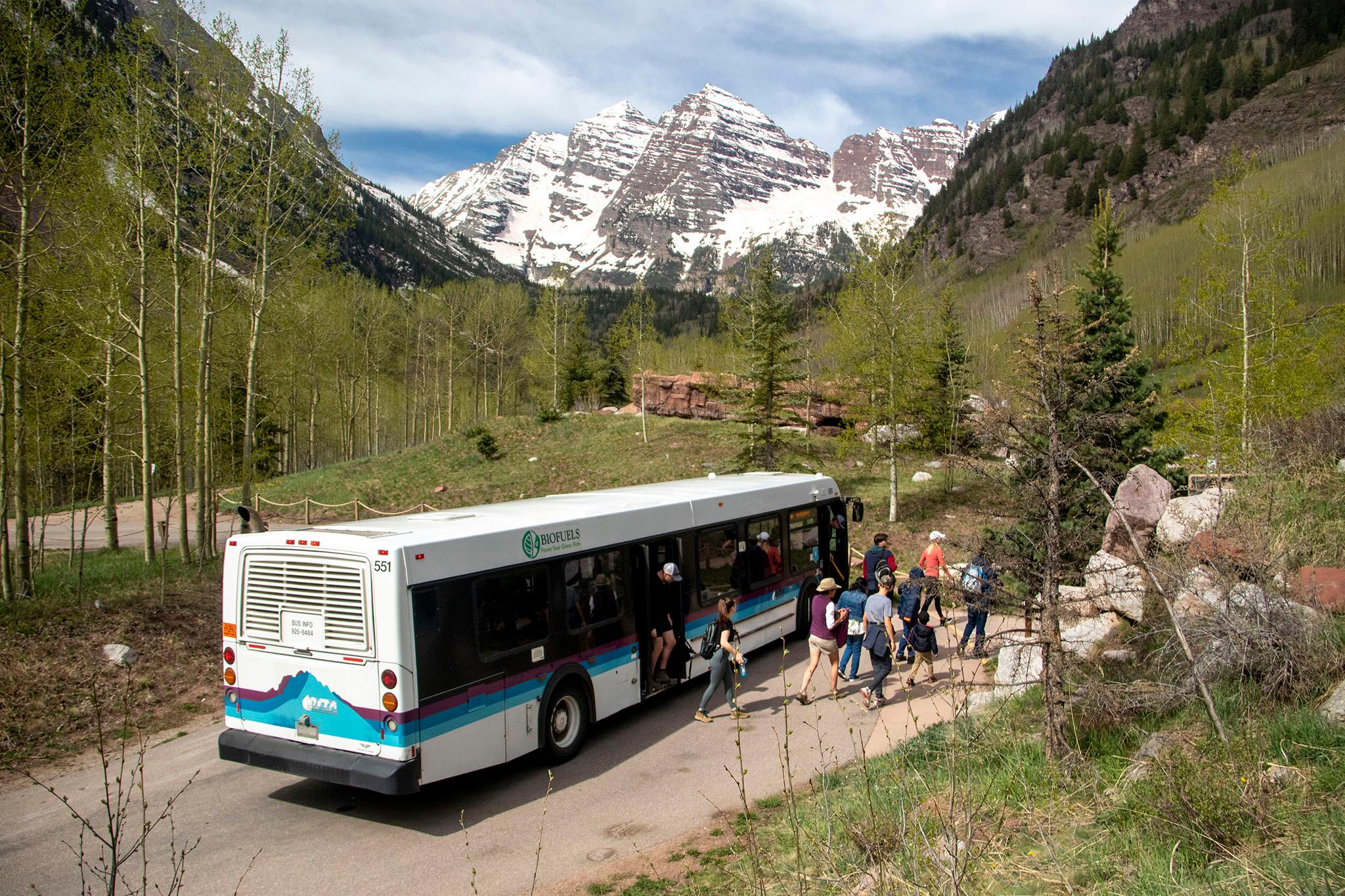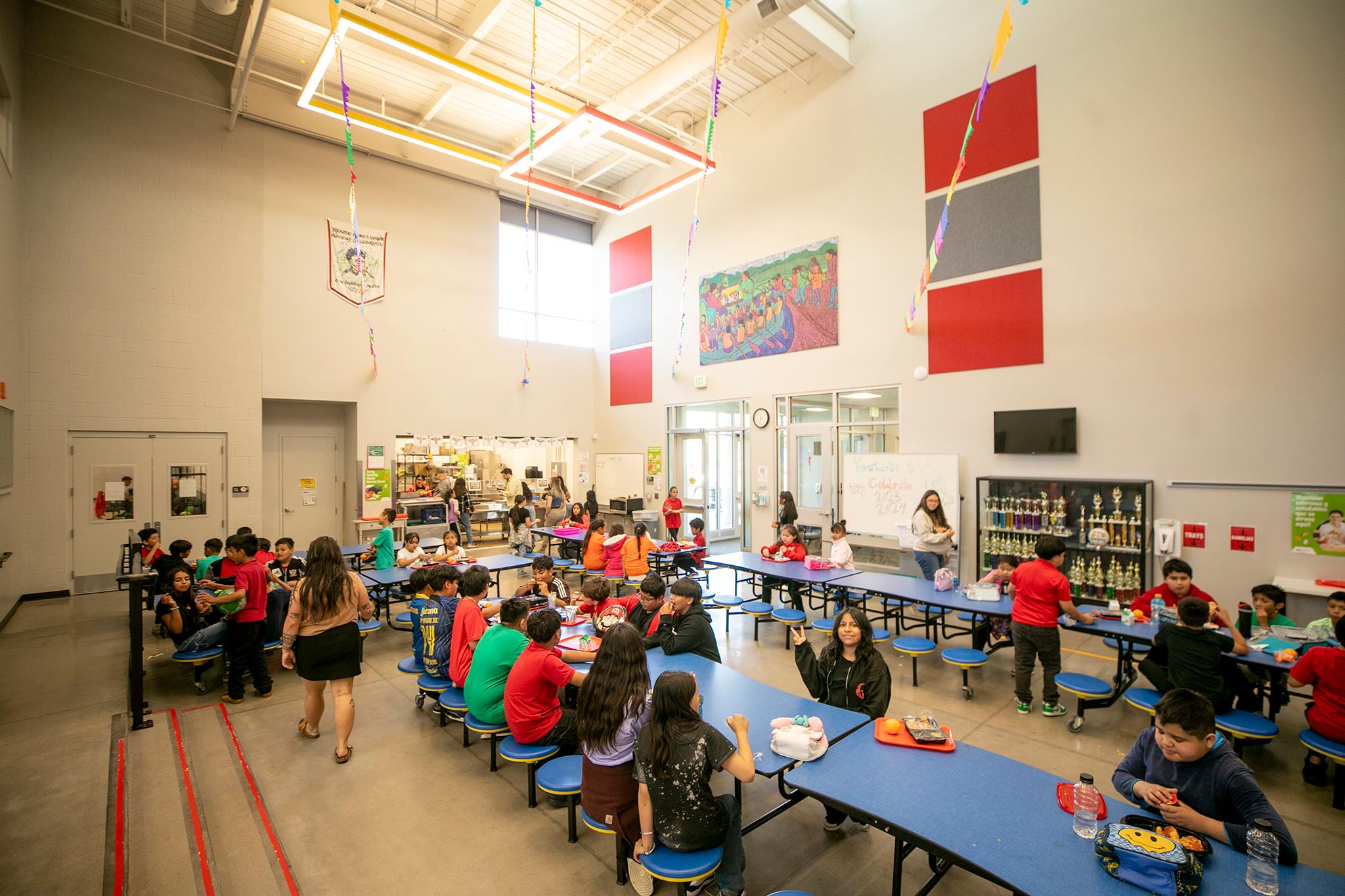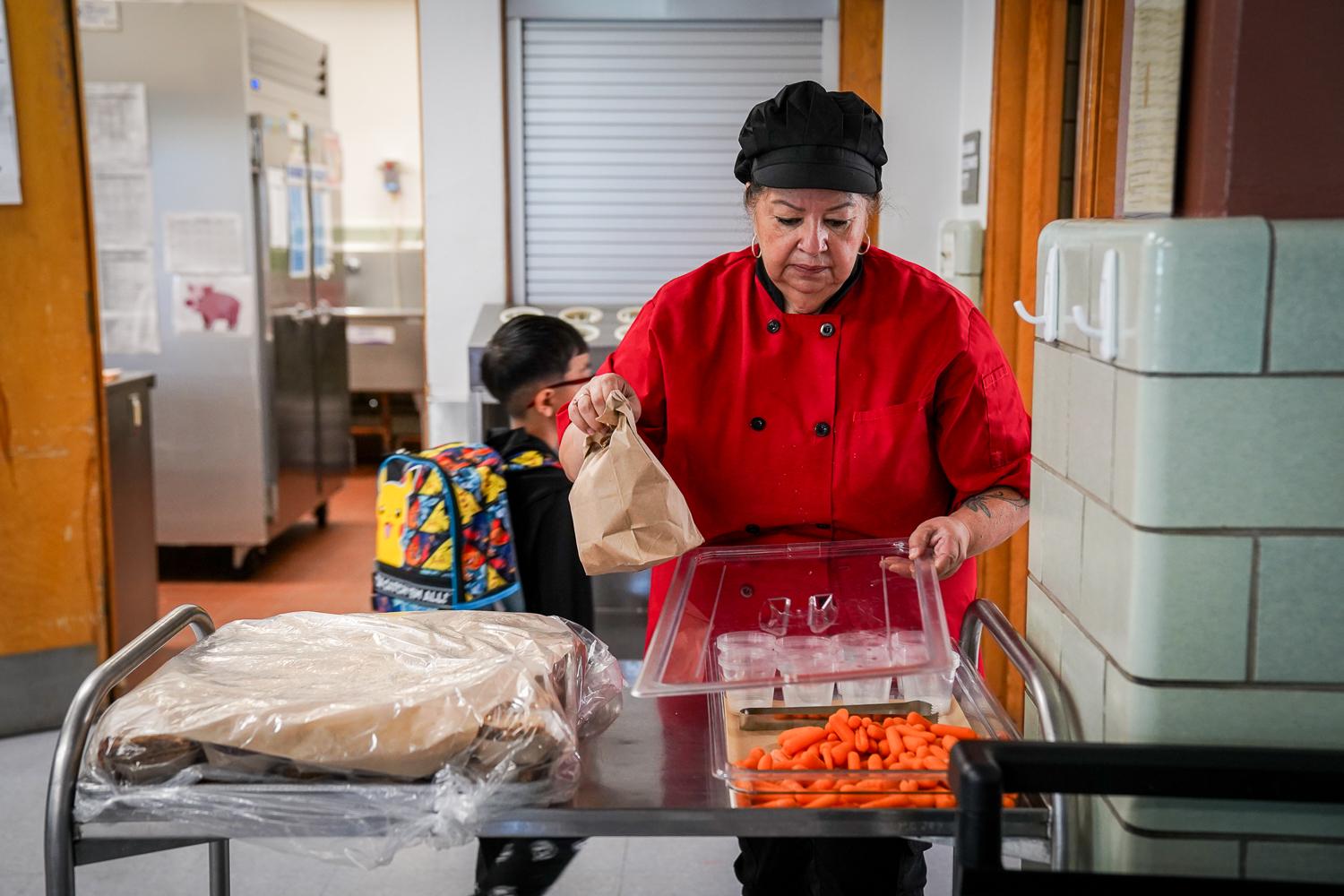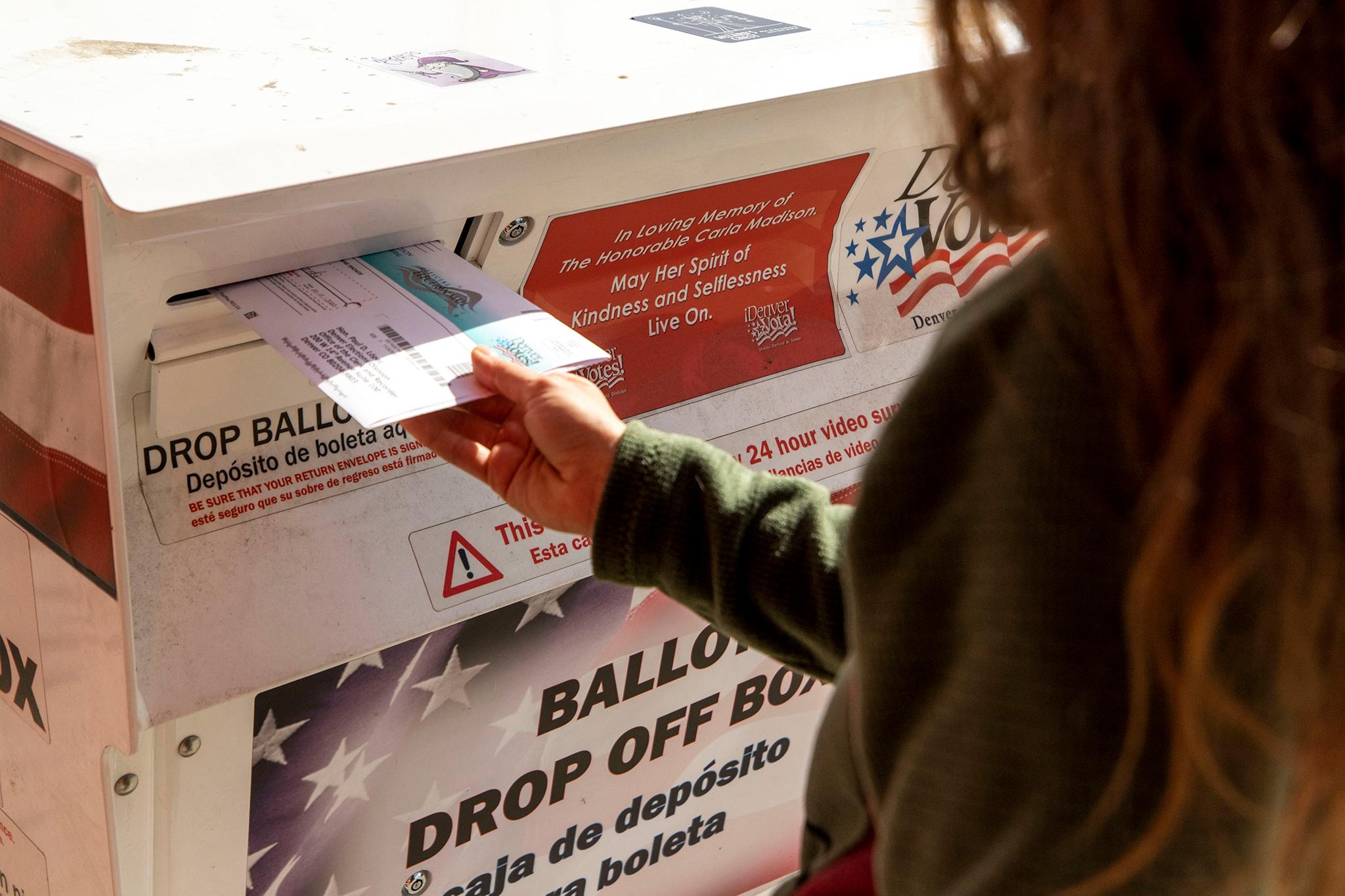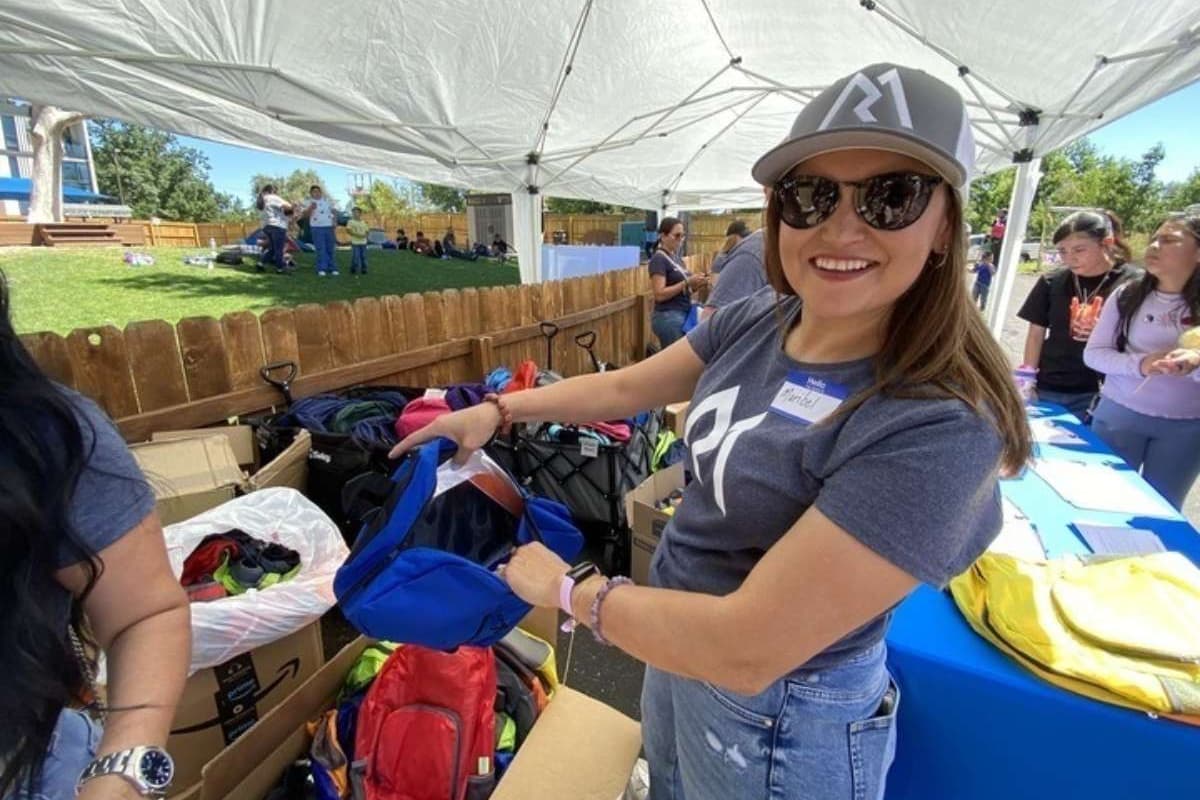
The vibe was festive recently at St. Mary Magdalene’s Catholic church’s Bazar de la Salud, where free vaccines and health screenings were a big draw for Denver’s Latino community.
But underneath, there was deep apprehension, said event organizer Julissa Soto.
“Yes, I serve a population that speaks Spanish only,” she said, noting that includes Mexican Americans, Chicanos — Americans of Mexican descent, immigrants, those with “uncertain status” and “mixed status” families. “And yes, the political climate right now is extremely difficult, not only for the families we are serving but also for myself.”
Immigration deportations and detentions have risen in Colorado under the current administration. GOP members of the state’s Congressional delegation want an end to state health spending for undocumented immigrants.
Soto, a veteran at promoting vaccines during the pandemic, said other community events are being canceled because people are not showing up due to fear of raids by Immigration and Customs Enforcement agents. She said she’s gotten threats but her mission is clear.
“I am not law enforcement to know who has papers or who doesn't,” Soto said. “My job is to provide care and meet people where they're at.”
Father Joe McLagan said the health event here coincided with the feast day for the parish named after St. Mary Magdalene.
“It is just a general benefit to care for people. I mean, that's just one of the things we do is being human, right?” he said.
Inside the chapel, the sun shone through colorful modern stained glass. After communion, Soto talked to a crowd of parishioners. She described the variety of free health services available. “Vacunas para los niños, vacunas para los adultos,” she said. (vaccines for children, vaccines for adults).
Soto got a warm response, as churchgoers clapped politely.
Afterward, she said she underscored a message of community.
“The Lord said we need to help our neighbors and to give until it hurts,” Soto said. “I say to them, ‘go get your screenings, but also eat here. Do not go to a restaurant. Help out the church.’ We need to help our neighbors.”
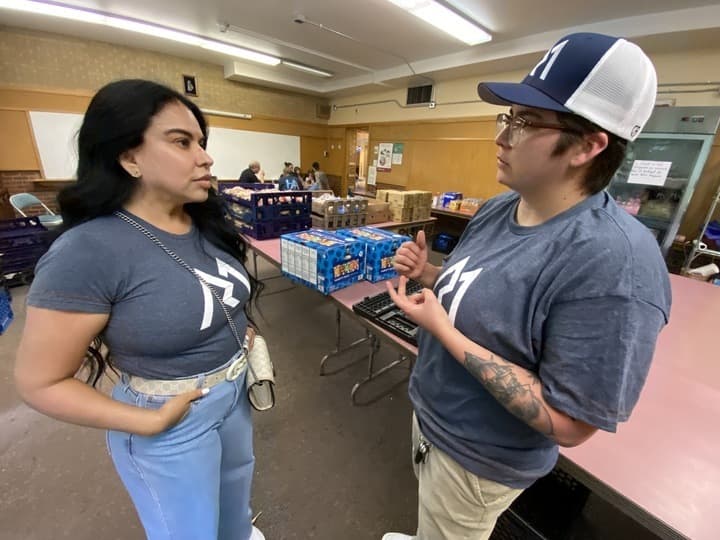
Volunteers said it’s meaningful to help people who may now struggle to get health care.
One, America Cervantes, has family members who are citizens and others who are immigrants who are “afraid to even go to the grocery store. So they have to send their kids who are the citizens that were born here to get certain items that they need just to live off. So it's pretty scary, pretty nerve-wrecking, and it's just unfair.”
Dr. Thomas Jensen is with the Denver Catholic Medical Association. He said resources have been drying up for these populations, who may end up seeking much more expensive healthcare in hospital emergency rooms if they delay routine and preventive treatment.
“The climate is very difficult for people to feel like they can navigate here safely,” said Jensen. “And we want them to know that this is a place where they can feel safe, that there's not something bad going to happen to them. No one's going to report them here. We're here just to listen to their stories and help them out.”
Members of the Denver Sheriff Latino Organization are here as volunteers as well. One, Silver Gutierrez, said the city is not working directly with ICE.
ICE has typically avoided doing enforcement actions at churches, and no agents were seen at the event. Gutierrez said if they did show up, “we could tell 'em they need to leave, they can't be here and stuff because it's private property,” he said. “All people are welcome in the church and so we don't discriminate on anyone.”
Chris Martinez echoed those thoughts.
“Anytime that you can help anybody, it doesn't necessarily need to be immigrants or migrants or anything, but anybody that needs attention, everybody deserves healthcare,” he said.
As music from Los Lobos streamed out of speakers, kids played a game on a hillside next to the parking lot.
The fair included a broad array of free services from screenings for cancer to immigration and family law consultation to info and surveys about health insurance and Medicaid. Businesses and health organizations were among the sponsors.
Primary care doctor Ozzie Grenardo said in the face of uncertainty, many are redoubling their efforts.
“This health fair is a perfect example of how do we bring multiple people, multiple services, into one space to help,” Grenardo said.
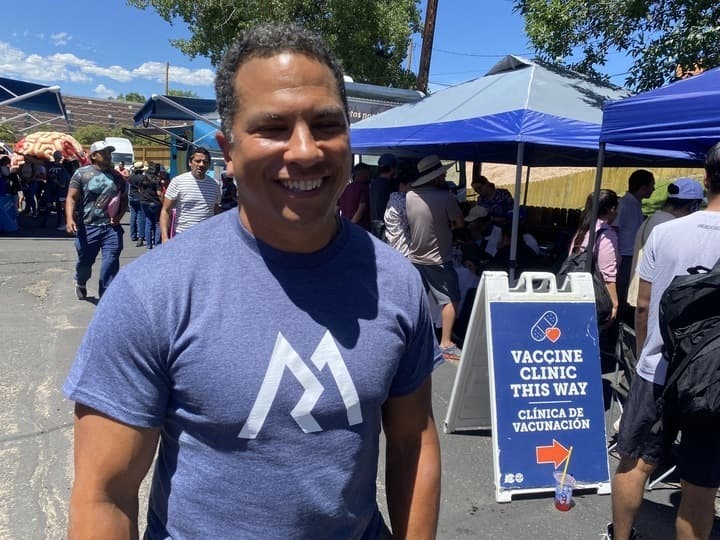
One mother came here to get two young kids vaccinated. With Soto translating, she said her name is Albanese.
“She says that the events like this they're super good because her kids are not vaccinated,” said Soto, explaining the mother said the family had come from Venezuela and had been in the U.S. a couple of years.
The woman said she worked as a roofer and the money is good. But she fears deportation.
“The president wants to kick us out. Give an opportunity to people that work really hard. We're not all the same. The people that they're bad, deport them, but we're not all bad,” she said.
Another mom described her visit, also through a translator. “She's been needing to do her eye exam for a while. So now she's happy that she was able to get that done,” said the translator.
She explained her name is Ana. She’s been here 25 years and is a stay at home mom. Her husband is a landscaper.
“She definitely says that there is a lot of unknown feelings, a lot of fear, especially with everything that's going on,” the translator said.
Soto said there are more obstacles ahead, with cuts to Medicaid set to take effect in a little more than a year and recent news about Medicaid enrollee personal data, including addresses, being shared with ICE.
“I honestly think that our community is not going to apply for, even though they qualify for Medicaid and other public service needs that they might have, they're not going to apply for those services,” said Soto.
By day’s end, the health fair had cared for a lot of people who otherwise may not have gotten critical preventive care. Three hundred got vaccines, nearly seven hundred got a variety of health screenings and more than 200 filled out community surveys, according to Soto, who said she was delighted by the turnout.
“I feel really, really good. I feel extremely good being here at St. Mary Magdalene on a Sunday,” she said. “Last year it rained on them, so it was extremely difficult. But today I feel extremely, extremely happy.”
Graduate student Giselle Alpizar-Calixto, another volunteer, said in the current atmosphere of doubt, health fairs can build community support.
“Trust is a huge component when it comes to healthcare,” she said. “Because in order to receive that trust, there's respect and dignity that have to come into play and take into consideration when most of the time, especially in the Spanish-speaking community, they don't feel that trust.”

